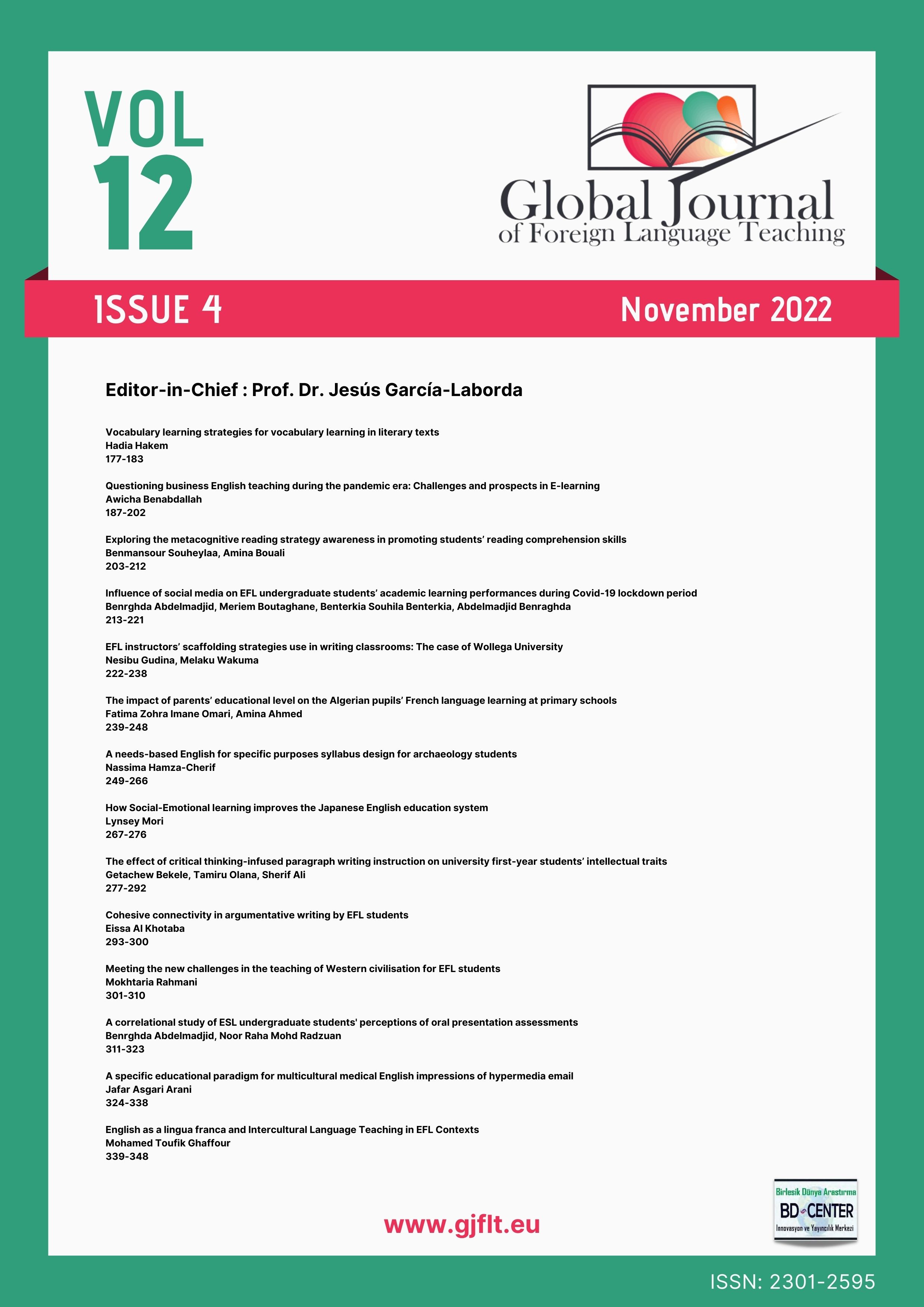Questioning business English teaching during the pandemic era: Challenges and prospects in E-learning
Main Article Content
Abstract
The COVID-19 pandemic resulted in the shutdown of industrial, economic, academic, and public institutions all across the world to ensure social separation among individuals. On the education ground, decision-makers called for a switch from on-the-ground to online instruction as a remedy to this challenging issue. This study, therefore, aimed to investigate the primary challenges that English for Specific Purposes teachers and learners encounter in the Higher School of Management of Tlemcen, Algeria in E-learning classes, as well as the most effective ways and skills to cater to the needs of this global age during this pandemic era. This research is a case study conducted on 5 ESP teachers and 60 first-year learners. The data collection was through a questionnaire and a semi-structured interview. Findings revealed that despite their recognition of the vital importance of such courses, both teachers and learners encounter a set of challenges related to organizational, technological, pedagogical, and psychological issues.
Keywords: Business English; COVID-19; E-learning; pandemic.
Downloads
Article Details

This work is licensed under a Creative Commons Attribution 4.0 International License.
Authors who publish with this journal agree to the following terms:- Authors retain copyright and grant the journal right of first publication with the work simultaneously licensed under a Creative Commons Attribution License that allows others to share the work with an acknowledgement of the work's authorship and initial publication in this journal.
- Authors are able to enter into separate, additional contractual arrangements for the non-exclusive distribution of the journal's published version of the work (e.g., post it to an institutional repository or publish it in a book), with an acknowledgement of its initial publication in this journal.
- Authors are permitted and encouraged to post their work online (e.g., in institutional repositories or on their website) prior to and during the submission process, as it can lead to productive exchanges, as well as earlier and greater citation of published work (SeeThe Effect of Open Access).
